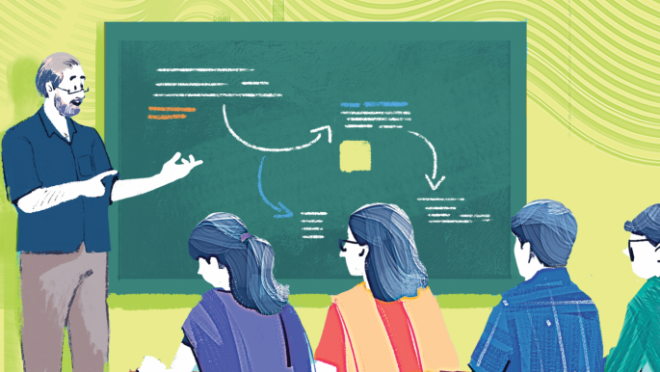Why Bangladesh’s universities need a cultural reset
Why Bangladesh’s universities need a cultural reset

I still remember my first week at the London School of Economics (LSE) in 2022. Alongside lectures and seminars, I was assigned an “academic mentor”—a professor I would meet at least twice every term.
These sessions were not just for academic discussions; they also provided opportunities to share the challenges of adjusting to a new city, seek advice on readings or future research, and even discuss career prospects. Beyond this formal structure, every professor held designated consultation hours each week. Their doors were open, their emails answered promptly, and questions always welcomed. Professors treated teaching as a craft they valued, not merely a duty to complete.
This experience shaped how I came to think of universities as spaces of idea exchange, mentorship, and growth. When I reflect on Bangladesh’s higher education landscape, I cannot help but notice how far we are from such practices.
Students here face closed doors, unapproachable faculty, and a culture that too often prioritises politics and consultancy over pedagogy. I completed my bachelor’s and master’s from Dhaka University. While my personal experience was relatively positive, it was more an exception than the reality for all.
I had faculty members who guided me, encouraged my ambitions, and penned glowing letters of recommendations to support my applications abroad. But I recognise that my experience was exceptional, as friends from other departments narrated very different stories. For them, faculty members were distant, classes uninspiring, and mentorship nonexistent. I was fortunate, but most were not.
One of the starkest differences lies in the accessibility of faculty. According to Bangladesh Education Statistics 2023, the teacher–student ratio in Bangladeshi universities is 1:32. However, the challenge goes beyond what this ratio suggests. Many faculty members maintain an aura of inaccessibility, often intimidating students who might otherwise seek clarification or advice. Consultation hours are rare, if they exist at all. Interactions usually end the moment a lecture ends.
A glimpse of hope appeared in 2022 with the ‘Public University Teaching Load Calculation Policy’ by the University Grants Commission (UGC). It mandates a 40-hour weekly workload for public university teachers. A crucial provision is the requirement for each teacher to spend at least one hour per week for student counselling.
In theory, this was meant to give students structured opportunities to interact with their teachers outside the classroom. In practice, enforcement has been weak, and students continue to struggle to find their professors when they need them.
Another obstacle comes from the teachers’ involvement in politics. For decades, faculty at public universities have been embroiled in partisan divides, often aligning themselves with either the ruling party or the opposition. This alignment extends into recruitment and promotions, where political loyalty can sometimes outweigh academic merit.
As a result, teaching excellence and mentorship are sidelined. Teachers devote time and energy to administrative responsibilities or consultancy projects that are financially rewarding and politically visible; while pedagogy remains secondary.
The research environment, too, reveals troubling gaps. According to a UGC report published in 2022, universities spent only 2% of their total academic expenditure on research activities in 2020.
While publication numbers from Bangladesh have increased in recent years, they remain low relative to peer countries. Then comes the research quality. Even at Dhaka University, several teachers were demoted after being found guilty of copying published work, a humiliation for the institution and a betrayal of students’ trust who expect integrity from their educators. When faculty members themselves resort to plagiarism, the example set for students is corrosive.
Reforms in the education sector must begin with a cultural reset. A faculty evaluation system is crucial for reviewing the performance of faculty members. While it exists in many private universities, it is absent in public ones. Such a system would provide faculty members with opportunities to improve their teaching styles and overall interactions with students.
Policies like the 40-hour work exist but without enforcement and a shift in institutional priorities, they remain on paper. Universities must mandate and monitor faculty consultation hours, ensure transparent recruitment processes free from partisan influence, incentivise quality research and honest scholarship, and, above all, establish safe and independent mechanisms to address harassment complaints.
These reforms are not luxuries—they are essential if Bangladesh wants to build universities worthy of living up to the expectations. Ultimately, teaching is not just about transferring knowledge; it is about inspiring curiosity, nurturing critical thinking, and supporting students as they find their path.
From my own experience, I know how teachers can be agents of change—but I also know how rare they are in our current system. For Bangladesh to move forward, we must reclaim the university as a space where pedagogy, not politics, comes first.


